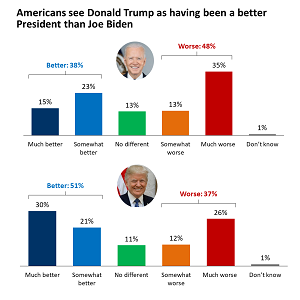
A newly released INNOVATIVE poll of 2,771 eligible Canadian voters and 2,435 registered US voters has found Canada and the US have experienced two major value changes over the past four years.
![]()
In the wake of the growing Black Lives Matter movement and increasing discussions about racial justice, we have seen a dramatic rise in the esteem of Black people in both countries. In 2016, just over half (51%) Americans reported a favourable impression of Black people (7 or higher on a 0 to 10 scale). Now 62% of Americans say the same, an increase of 11 points. Similar, in Canada, favourable impressions of Black people have risen from 55% to 65%, a gain of 10 point.
In both countries the biggest shift is away from those who reported more neutral feelings, although in Canada there has also been a decline in those report unfavourable feelings from 10% to 5%.
This is an unusual success for a social movement. For instance, the environmental movement has generated a great deal of attention with efforts such as the Greta Thunberg-led climate strikes but two environmental measures on our survey show much smaller and more mixed changes.
The other clear change has been the decline of populism and the rise of deference. We track populism by asking whether governments should rely on experts or if governments listen ‘too closely’ to experts and should defer to common sense instead.
![]()
In 2016, this form of political populism was dominant in both Canada and the US. Majorities in both countries were skeptical of relying on expert opinion by a margin of 20 points or more. Now the two countries are divided with almost as many taking the deferential view as the populist view. The differences is only 3 points in Canada and 2 points in the US.
Two other areas show smaller shifts – but running in the same direction in both countries:
- In both Canada and the US, people are more skeptical of globalization. The number who say globalisation is good for their country is down 10 points in Canada and 7 points in the US. The number who feel they are personally better off as a result of globalization is down 8 points in the US and 4 points in Canada.
- Despite the undeniable economic impacts of the COVID-19 pandemic, people in both countries are less likely to agree “No matter how hard I work, every year it seems more difficult to get by”. The number who agree is down 12 points in the US and 5 points in Canada.
Are Canadians and Americans becoming more similar?
In addition to parallel shifts on some values, there are also 8 value dimensions where the two countries are converging:
- Fewer Americans and more Canadians say it is hard for ‘people like me’ to get ahead these days. This brings the numbers between the two countries closer in line with each other.
- While Americans remain more angry about their governments than Canadians, they are less angry than four years ago – closing the gap somewhat.
- Canadians and Americans are converging on global engagement. Americans are a little more likely to hold an engaged point of view while Canadians have shifted away from engagement slightly.
- Increasing positivity about immigration in the US means the gap with Canadian views is shrinking. Americans are also more favourable to Muslims, now approaching Canadian levels.
- The differences in how to approach drugs is also shrinking with Canada a little more conservative and the US more liberal than 4 years ago.
Although there are some key exceptions, Canadians and Americans have always held many broadly similar values. While important differences remain, many of the changes over the last 4 years point to countries with more in common than they used to have – not less.
For more information and detailed results, read the full report here.
Methodology: Results for this study come from two online surveys of American registered voters and Canadian eligible voters. Both surveys were in field from September 29, 2020 to October 6, 2020. The American survey has a total weighted sample size of 1,000; the sample was weighted by age, gender, region, education, race, and urban/rural. The Canadian survey has a total weighted sample size of 1,500; the sample was weighted by age, gender, and region. See the full report for detailed methodology.


































